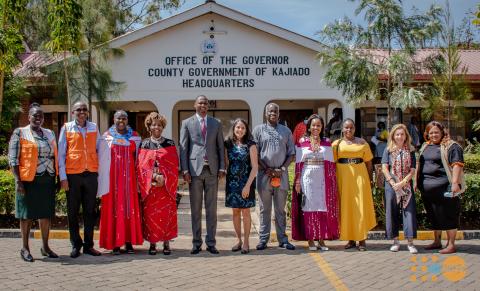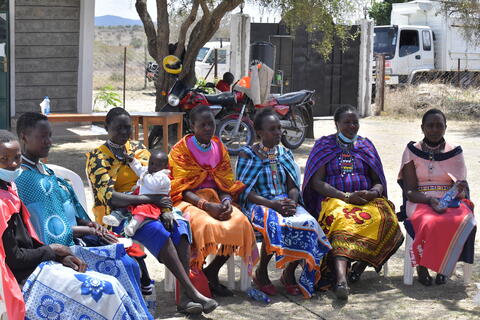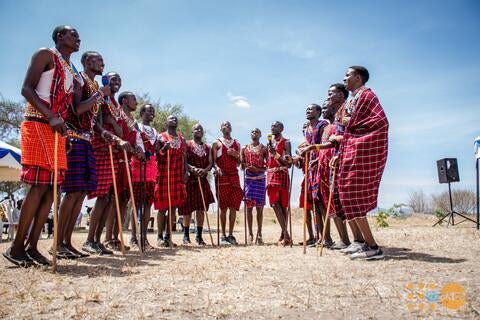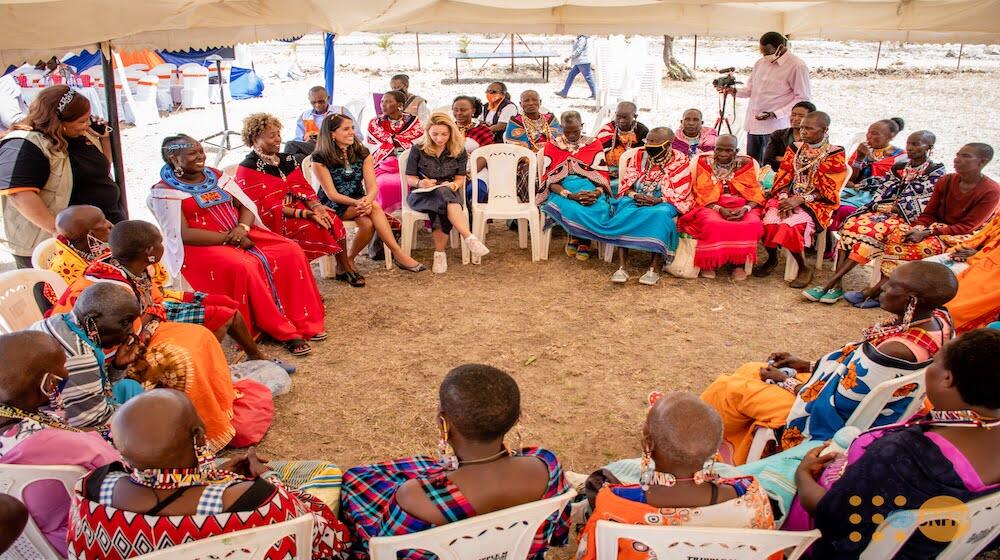At 78%, the FGM prevalence rate in Kajiado County is amongst the highest in Kenya (KDHS, 2014). Eliminating FGM in the county takes effort due to the pastoralist nature of resident communities. With the county bordering Tanzania, the threat of cross-border FGM is high which further hampers prevention and response measures. However, collaboration between government, civil society, community-based organizations and anti-FGM champions is bearing fruit as evidenced by the increased school retention and transition rates for girls in the county.
UNFPA works with the County Government of Kajiado and partners such as World Vision Kenya and Illaramatak Community Concerns (ICC), a community-based organization that has been leading local sensitization efforts towards ending FGM in the county. The multi-stakeholder approach to ending FGM has led to greater coordination in the establishment and execution of prevention and response mechanisms. “At the government level, we work to integrate anti-FGM advocacy in all initiatives including gender equality projects, education, and climate change adaptation initiatives,” said Assistant County Commissioner, Ms. Zuhura Mambo.

Rights, H.E Ms. Rita French pose with representatives from UNFPA, World Vision Kenya, the Anti-FGM Board and ICC.
Community dialogues jointly organized by stakeholders have also helped to sustain momentum in the fight against FGM, even as the county deals with challenges brought on by the Covid-19 pandemic and the current drought situation which has created an economic burden that disproportionately impacts women and girls. “Area chiefs and community volunteers have also been deployed to ensure that girls in each household are attending school,” adds Ms. Mambo.
At the community level, a community-based organization, Illaramatak Community Concerns, with support from UNFPA through World Vision Kenya, has established locally-led initiatives that aim to change the cultural and social norms and beliefs that drive FGM. They include the formation of peer groups that bring together elders, young mothers, reformed circumcisers, and young Maasai morans (warriors) who are engaged in education programmes and grassroot activities to raise awareness on the need to end FGM. “Our goal is to ensure a collective community abandonment of FGM, which can only be achieved if each member of the community understands the dangers of FGM, and its impact on the well-being of our women and girls,” says ICC founder, Ms. Agnes Leina.
One such initiative is the “Nadupa Young Mothers Group,” led by Josephine Nkinyie. With 30 members aged between 20 and 35, the group plays a key role in community surveillance efforts that have seen a drastic reduction in cases of FGM in the surrounding villages. “We decided as a group that our daughters will not undergo the cut, and none of our relatives or neighbours will be subjected to it under our watch,” says Josephine. The group received training on FGM prevention and response as well as livelihood skills such as beadwork and tailoring which have empowered the women economically.

As part of the efforts to accelerate the abandonment of FGM, UNFPA through World Vision Kenya has supported 10 community based organizations to implement activities aimed at awareness creation, capacity building of duty bearers and service providers, and strengthening community surveillance mechanisms, and data collection on issues of FGM
Our goal is to ensure a collective community abandonment of FGM, which can only be achieved if each member of the community understands the dangers of FGM, and its impact on the well-being of our women and girls
Cultivating male champions from the elders and moran groups has also helped in challenging the stigma around uncut girls, who are often ostracized by the community as unfit to marry. “We encourage men to take on a more active role in the fight against FGM, and particularly fathers, who have great influence over whether their daughters will be cut or not. Increasingly, men are helping us get girls into school and even reporting cases of FGM when they occur, says World Vision Programmes Manager Florence Korir.

involvement is key to eliminating FGM amongst communities living in Kajiado County
“Our engagement with partners at all levels is aimed at strengthening programmes and policies to deliver results for women and girls, and to ensure that protection services continue even in times of crises such as the ongoing drought,” says UNFPA Representative, Dr. Ademola Olajide.


